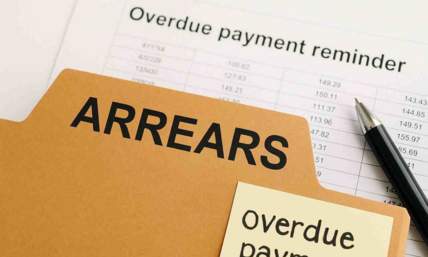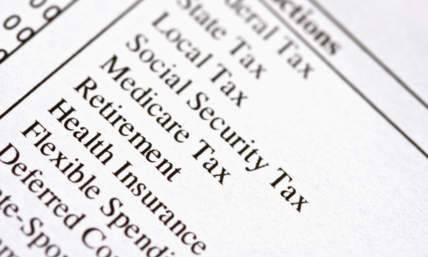How Many Savings Accounts Should I Have? - The Full Guide
Everyone knows that saving money is important. We all have expenses that require spending more money than we currently have. Savings accounts can help you focus on your savings, differentiate between your various financial goals, and look at your saving progress over time.
Most people have one savings account in their name, but how many savings accounts should you have? If you’re thinking about opening another (or multiple!) savings accounts, you’re in the right place. This guide will help you decide how many savings accounts you should open. You’ll also find tips on how to manage several savings accounts to avoid becoming overwhelmed with your finances.
Also read: Make a Budget in Excel
There’s No Limit
Savings accounts can help you reach your financial goals quicker, so it’s good that you can open as many of these as you like! There’s no limit to how many savings accounts you can have. Most banks should let you open several of these if you wish to do so.
While opening lots of credit cards at one time can impact your credit score, savings accounts will not. Some of these accounts have minimum balances and monthly fees, but if you don’t want to spend any money, you can choose ones without these requirements.
You can open as many savings accounts as you want, but you should only open as many as you can manage.
Also read: Cash Back Credit Cards

Why You Should Have Multiple Savings Accounts
Having several savings accounts is a good idea, as the majority of people have many savings goals. Putting all of your savings in one account makes it difficult to see how much you’ve saved away for each goal. Having different savings accounts for each of your goals has many advantages. These include:
Efficient Transfer
Through automatic transfer, you can make sure a specific amount of money gets transferred to each of your accounts every pay period. All of your goals may need different amounts of money, for instance, $300 for your first house, $100 a month for a new car, or $100 for a holiday. Having several savings accounts makes transferring the correct amount of money easier.
Tracking Progress
Separate savings accounts make tracking your savings progress easier. One savings account doesn’t allow you to differentiate between your goals. As you only see one sum of money, you won’t know if you’ve met your vacation savings goals or if you’ve saved enough for a house deposit. Individual accounts allow you to track your savings and see if you’re not saving enough.
Motivation
Saving money is hard, but picturing what you’ll do with the money can help you stay motivated. This is where separate savings accounts come in. For example, if you’re feeling down about your current savings for your future house, just looking at how much you’ve saved can help you stay on track. You can direct your attention to a particular savings account and focus more on a specific financial goal.
Less Chance Of Misspending
Having one account makes it easier to spend money by mistake. Having designated savings accounts makes misspending unlikely as you’re clear about the goals each account is for.
Also read: What is the 50 30 20 Rule?

How Many Savings Accounts Should You Open?
There’s no one answer to this question, as everyone’s financial situation is different. It’s a good idea to have different savings accounts for each financial goal. Open a different account for each of those objectives. Everyone’s needs are different, but some common savings accounts include:
-
An account for a house down payment. If you already own a home, this could be a home repair fund.
-
Saving up for a new car. If you own a vehicle already, this money could be for auto repairs or insurance.
-
Short-term emergency fund with $1000 or less.
-
Long-term emergency fund with several months of expenses, including bills, groceries, and amenities.
-
Vacation/weekend break trip fund.
-
Larger purchases, like refrigerators, televisions, dishwashers, or smartphones.
-
Annual taxes account if you need to pay your state or the IRS in the future.
Saving for retirement and college for your children also matters, but you shouldn’t open standard savings accounts for these goals. Find accounts that have tax benefits, like a 529 for college, or a 401(k) for retirement.
Some people have health plans that allow them to open health savings accounts. In this case, research different brokers to see which ones offer HSAs. If you don’t qualify for these, it's best to open a normal savings account for healthcare expenses in case they’re necessary for the future.
Also read: What is the average credit score?
If You’re Married or Have A Partner
If you and your partner/spouse share finances, opening several savings accounts can give you both independence and privacy. For example, you may want to open a separate account for things you want to buy. You can also open a shared savings account where both of you can work towards saving for the future.
Also read: Can You Cash a 2-Year-Old Check?
Insurance
If you have plenty of cash savings, you may want to open your accounts at different banks. This may help keep your balance under FDIC insurance limits. Banks generally have a $250,000 limit for each account. Holding extra sums of money at different banks may help protect your savings. However, you may be able to hold more than $250,000 in one institution, but you’ll have to contact your bank for information.
Managing Your Savings Accounts
While opening lots of savings accounts is a good idea, managing all of these can be difficult. You can make it easier for yourself by choosing one bank for all of these accounts. Do your research to see which bank offers the best annual percentage yield (APY). Doing this will ensure you earn back the maximum amount of interest on the money you place in the account.
You should also ensure that the bank account doesn’t need a minimum balance, have fees, or have a requirement to earn the APY. These needs can be hard to meet if you’re putting all of your money into several accounts. If you know that your account may go under a minimum balance, try and find a bank that doesn’t have these fees.
Once you’ve opened your accounts, start transferring specific amounts of money into each one. Depending on your bank, you may be able to set up an automated transfer. This will automatically transfer an allocated amount of money into your accounts once you get paid. This makes it easier for you to meet your financial goals.
To decide how much money you’d like to put into each account, you’ll need to budget carefully and set some goals. Work out how much money you need altogether, then decide on a deadline for meeting the goal. You can then figure out how much you need to transfer into each account every pay period. Put the numbers into your budget to make sure you have enough left over for your living expenses.

The Bottom Line
Owning several savings accounts can make it easier for you to save for specific goals. You can open different ones for a future house, a car, emergency funds, or a rainy day! There’s no one answer to how many savings accounts you should open, as everyone has different financial goals. You can open as many as you wish, just look out for banks that require a hefty minimum balance or access fees!
Your check stubs can be a great way for you to keep track of your finances so you can use them as a tool to use for when you start saving.















